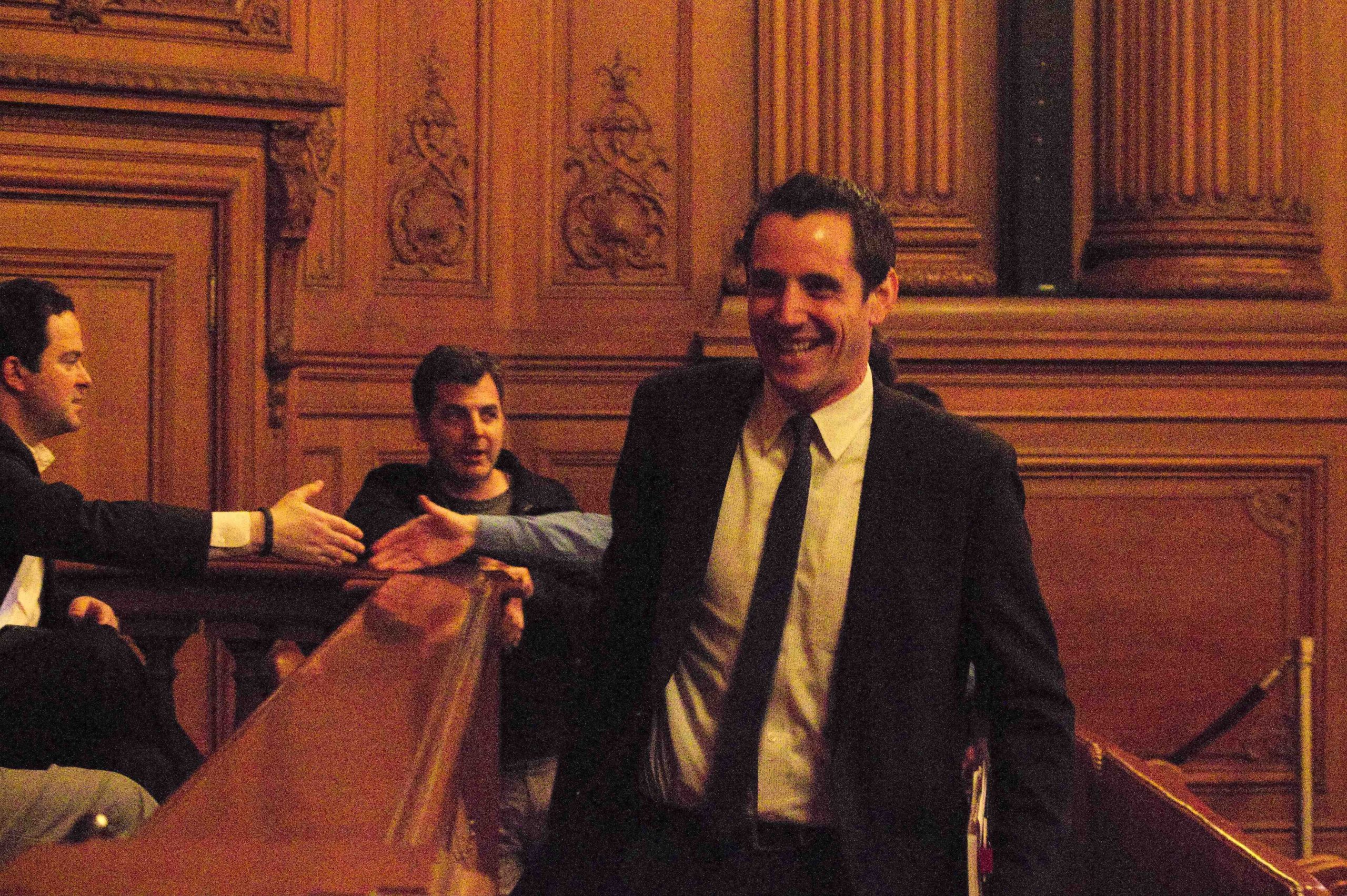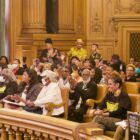Tenants in 3,000 rent-controlled buildings could potentially pay all the costs of retrofitting those structures against earthquake damage unless they receive a financial hardship waiver from the city’s Rent Board, under the provisions of a new law approved Tuesday by the San Francisco Board of Supervisors.
The Board of Supervisors will vote again on the retrofit law on April 9, and if it passes at that stage it will need the mayor’s signature before becoming law.
The retrofit law requires owners to strengthen their “soft-story” buildings, whose weak first floors are prone to collapse during an earthquake. Currently, building owners can pass the entire retrofit expense to tenant in the form of gradual rent increases over 20 years. The Office of the Controller estimated the rent pass-throughs would be between $38 and $75 for an apartment that cost $1,407, or the city’s median gross rent in 2011.
Tenants could only avoid the increases by proving “financial hardship” to the city’s Rent Board – a process that tenant-rights advocates say is invasive and outdated. A law being drafted would simplify that process.
“This legislation is long, long overdue,” said Supervisor Scott Wiener of the law that passed on a unanimous vote. “We know that if these buildings collapsed, not only will we have displaced residents, but when the buildings are rebuilt, they will no longer be rent-controlled. It is in all of our interests to make sure this housing stays intact.”
But supervisors made it clear that their support came under the assumption that Board President David Chiu will soon draft a separate law, which would help prevent property owners from displacing low-income tenants through rent hikes by streamlining the hardship process. The retrofit law that the board approved on Tuesday will require building owners who apply for rental pass-throughs to simultaneously mail their tenants information on how to claim financial hardship.
Building owners would have to state under penalty of perjury that they have notified tenants of the hardship provision. In addition to facing perjury charges for failing to so, Supervisor Jane Kim said owners would not be allowed to pass through the retrofit costs.
Supervisor David Campos pressed Chiu and the mayor’s staff for details on the separate law and for a time frame for the bill to be presented.
Chiu said his trailing law would streamline the hardship application process in multiple ways, though his office could not provide details. He did say he hoped to have a proposal back to the board within “the next few weeks.”
“We’re still working on the language,” said Amy Chan, Chiu’s legislative aide. Chan said Chiu’s and the mayor’s office are writing the law in cooperation with tenants-rights groups San Francisco Tenants Union, the Housing Rights Committee of San Francisco and Causa Justa.
These tenant-rights groups had asked supervisors to lower the percentage of retrofit expenses that building owners recoup through rent increases from 100 percent to 50 percent. However, those organizations later decided to support the retrofit law in exchange for a promise to reform the process by which tenants could avoid the rent hikes altogether, said Kim.
Ted Gullickson, director of the Tenants Union, said “We pretty much agree on the concepts,” referring to Chiu’s still-to-be-written law.
The law would allow applicants to avoid the retrofit rent increases by simply mailing documents to the Rent Board that prove their financial hardship – rather than pleading their cases before a judge, which Gullickson said most applicants must now do.
Chiu said his law would automatically grant hardship to applicants within specific income levels, though Gullickson said they had yet to define those levels. Gullickson said he would push for 60 percent of the Area Median Income, which was $43,250 for a one-person household in 2012, according to the Mayor’s Office of Housing.
These changes would mean that fewer people would have to plead their cases before a judge. Kim said the hearings were “an incredibly invasive process where you can be cross-examined by your landlord, forced to talk very publicly about your personal financial matters.”
Robert Collins, deputy director of the San Francisco Rent Board, said that the judges who receive hardship applicants “look at the totality of the person’s circumstance.”
Sara Shortt, executive director of the Housing Rights Committee, said the process can be uncomfortable.
“The administrative law judge says, ‘You have the ability theoretically to earn more money than you do right now, but you’ve chose a job that makes X-amount, so we can’t grant a hardship,’” she said.
She also said judges have told tenants they should rent out a bedroom to make ends meet.
“It’s getting into people’s life choices,” Shortt said.
Gullickson said hardship rulings are arbitrary and depend largely on the judge’s discretion.
The financial hardship application process became the topic of debate when the retrofit law first went before the Land Use and Economic Development Committee in March.
“We believe the process works,” said the city’s earthquake safety manager Patrick Otellini, one of the retrofit law’s authors, “for disabled persons, for senior citizens and for people who simply can’t afford a rent increase of this nature.”
Delene Wolf, executive director of the Rent Board, said the current hardship application process was only reliably effective for the very poor.
“For people who are moderate income, middle income, it’s not a slam dunk that you’re going to qualify for hardship,” Wolf said.
Maria Zamudio, an organizer at tenant-rights group Causa Justa, called the process “outdated” for undocumented immigrants who make almost all their purchases in cash and do not keep paper records.
“We do have some success” declaring hardship, said Zamudio, “but it’s very hard to provide the documentation the Rent Board needs.”
Tommi Avicolli-Mecca, director of counseling programs at the Housing Rights Committee of San Francisco, said he hoped that Chiu’s legislation would fix the system.
“I think it’s really essential to have this companion piece,” Avicolli-Mecca said. “We want to create a situation in which nobody’s going to get displaced by these pass-throughs. If tenants get to live in a building, and landlords get to retrofit, then it’s a win-win all around.”
CLARIFICATION 4/4/13: The second paragraph of this article was added to indicate that additional legislative steps are required for the ordinance to be enacted.
This article is a follow-up to a special reporting project in the Winter 2012-2013 print edition, “Bracing for the Big One,” about earthquake safety. See sfpublicpress.org/earthquakes.










